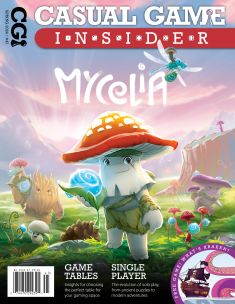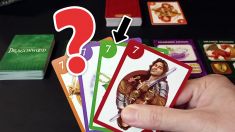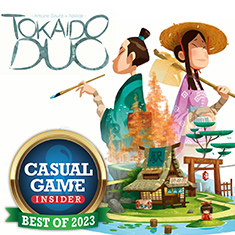Buy Up Letter Patents and Stocks in Letter Tycoon
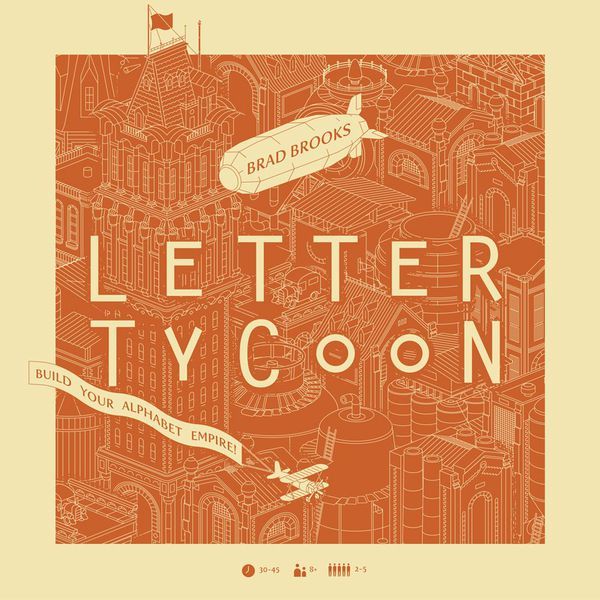
A winner of Mensa Mind Games in 2015, Letter Tycoon takes a new approach to word games. You not only earn points for the words you create, but you can earn points on your opponents' turns also. What will you build and what letters will you buy?
Gameplay
In Letter Tycoon there are two decks of cards: letter patent cards which are laid faceup on the table, and the letter factory cards, which are shuffled and form a draw deck. Every letter patent card and every letter factory card has one letter written on it. Each player starts with a hand of seven letter factory cards. Three more letter factory cards are drawn and placed face-up on the table, which are the community cards.
On your turn, you choose to either discard any number of cards from your hand and draw the same number of cards, ending your turn, or play a word. When you play a word, it must be at least three letters long and you must use at least one card from your hand. You may also use any number of the community cards when creating your word. Depending on how many letters are in your word you earn different amounts of money — and if it is six letters or longer, stock cards. Stocks cannot be spent during the game but score points at the end.
If any opponents own a letter patent for any of the letters in your word, they earn one coin for the number of times that letter appeared in the word. You do not earn money from patents for your own words.
Next, you may choose to buy a patent. Each patent card shows one letter on it and its price. You may only buy a patent for a letter that appeared in your word this turn. Some letter patents also have special abilities which you can use once per turn.
Finally, you discard any community cards used in your word, replacing them with cards from the draw deck, discard any cards from your own hand that you used, and may choose to discard any other cards from your hand that you no longer want, before drawing back up to seven cards. It is now the next player's turn.
The game ends once one player owns patent cards equal in value to a target amount (determined by player count). Players then total their score by adding the value of their patent cards, stocks, and coins. The player with the highest total wins.
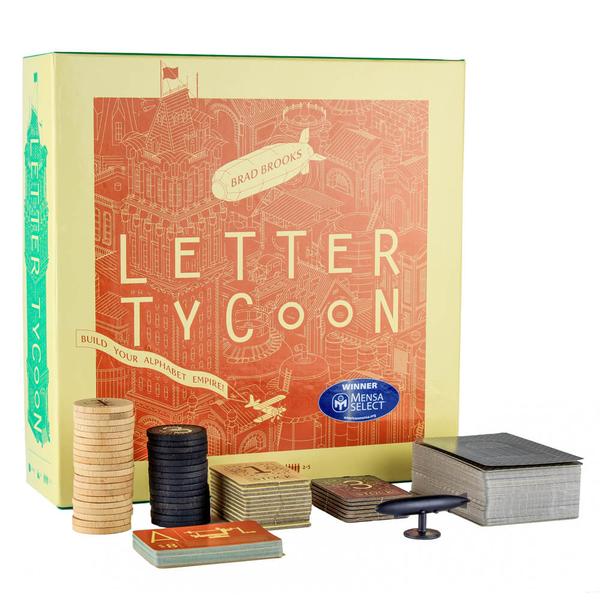
Review
Letter Tycoon brings a fascinating amount of strategy to the word game genre. The choices you have to make when purchasing patents are tough, but important, if you hope to win. You need to consider what letters other players are likely to use, or if you should save your coins up to buy more expensive letters or go for a cheaper letter that might not be used as often.
Rarer letters that are less likely to be used in words make for cheaper patents but also come with helpful abilities that make them worth buying. The fact that patent cards are also worth points at the end of the game, also means that you don’t have to worry that buying cards will lower your final score.
As more and more patent cards get purchased, playing words also becomes more difficult. You don’t want to use letters that will earn your opponents money, but avoiding it becomes a lot harder once everyone holds multiple patents.
Players have a lot of letters to work with when creating words, and the ability to discard any cards at the end of your turn ensures you’re unlikely to get stuck without any words to create. However, there aren’t really any mechanics to balance the game should one person just be a lot stronger at word games than others. This is not necessarily a flaw but it does mean that if you don’t enjoy the genre, this game is unlikely to win you over.
There are plenty of word games out there already, but Letter Tycoon is definitely one worth adding to your collection if you enjoy the genre. The combination of word mechanics and strategy is satisfying and clever. So dive in and start buying up those letters!
Pros: The patent mechanics add a layer of strategy to the word creation, scoring is simple and easy to calculate
Cons: Unlikely to win players over who do not typically enjoy word games









